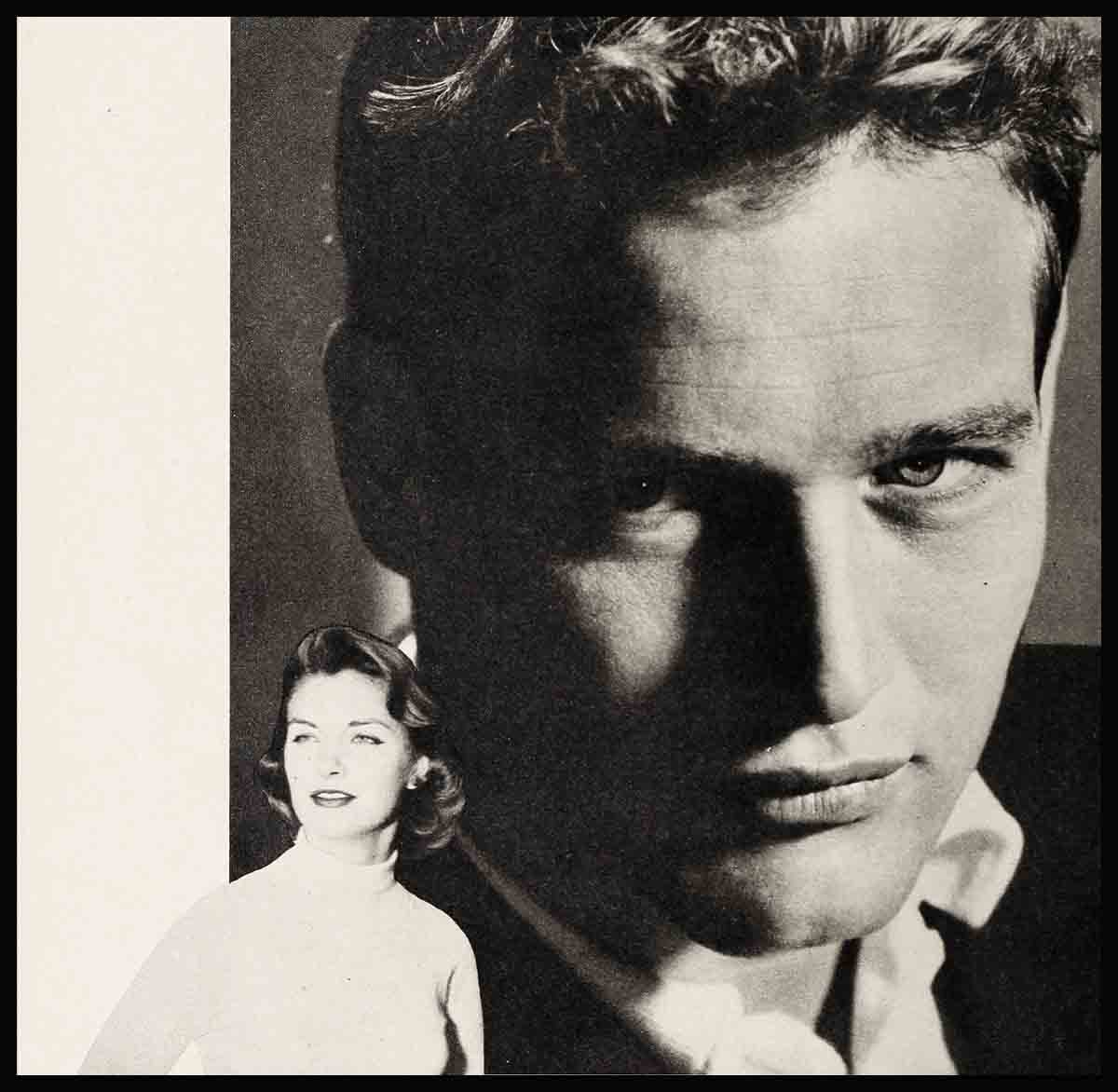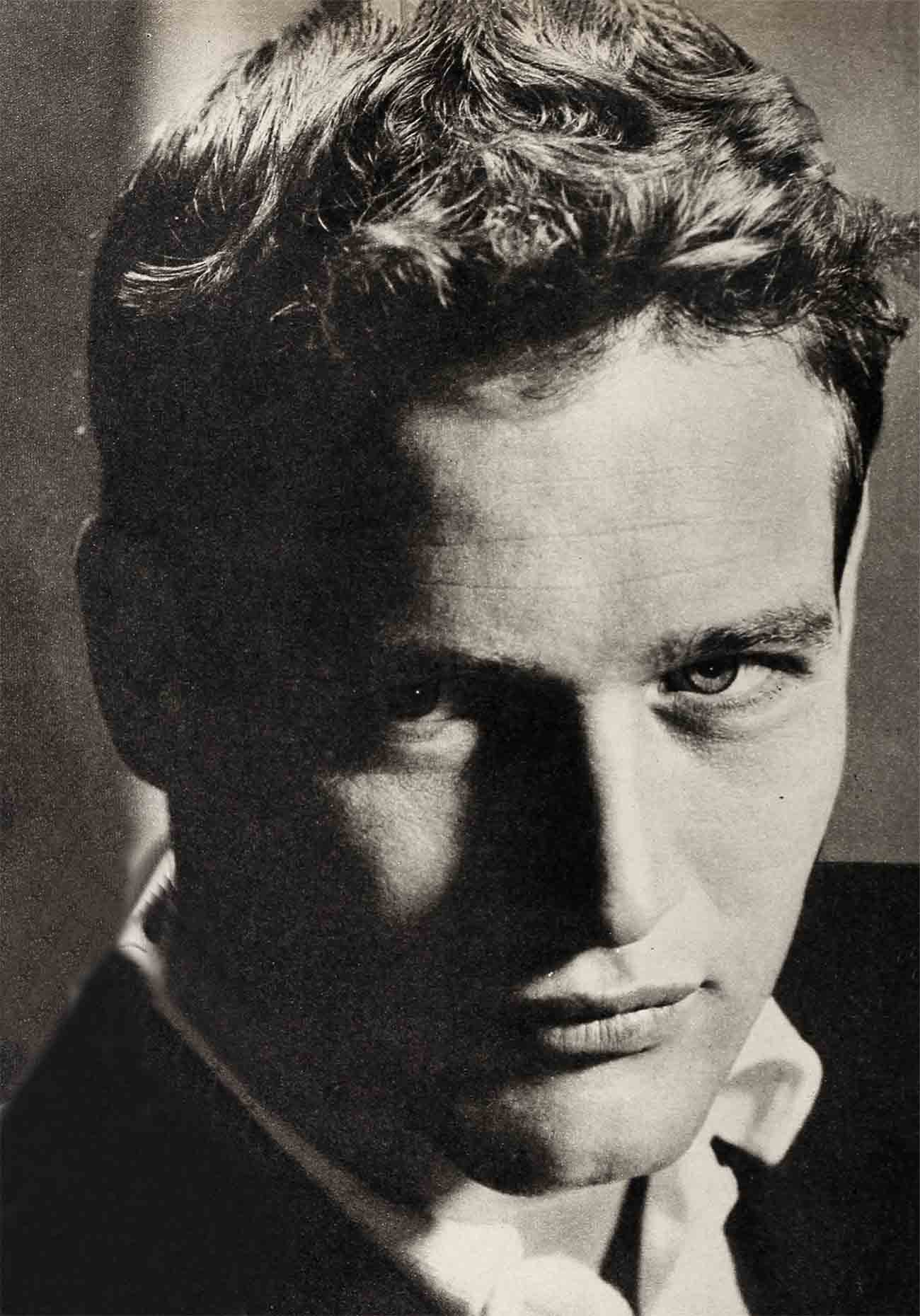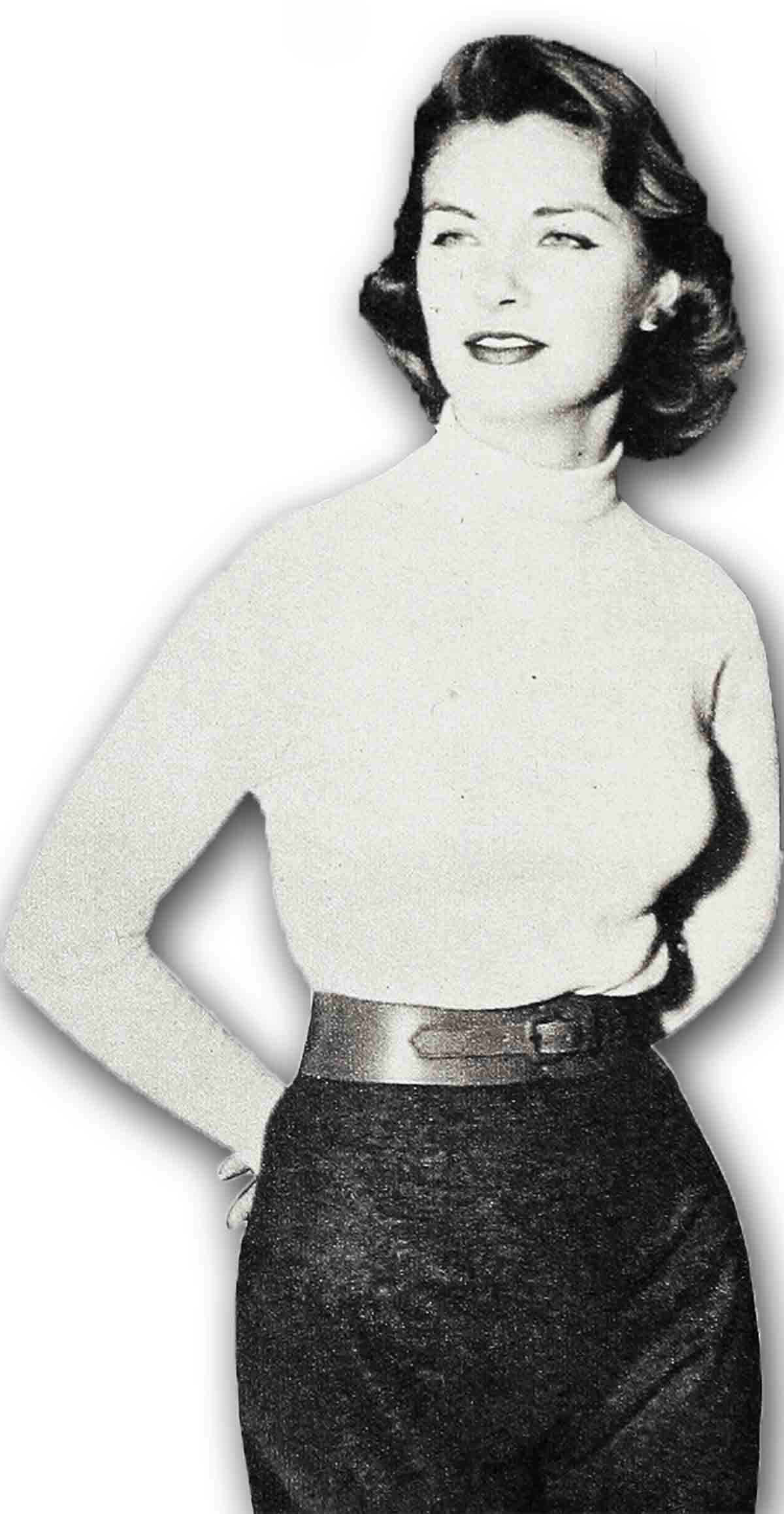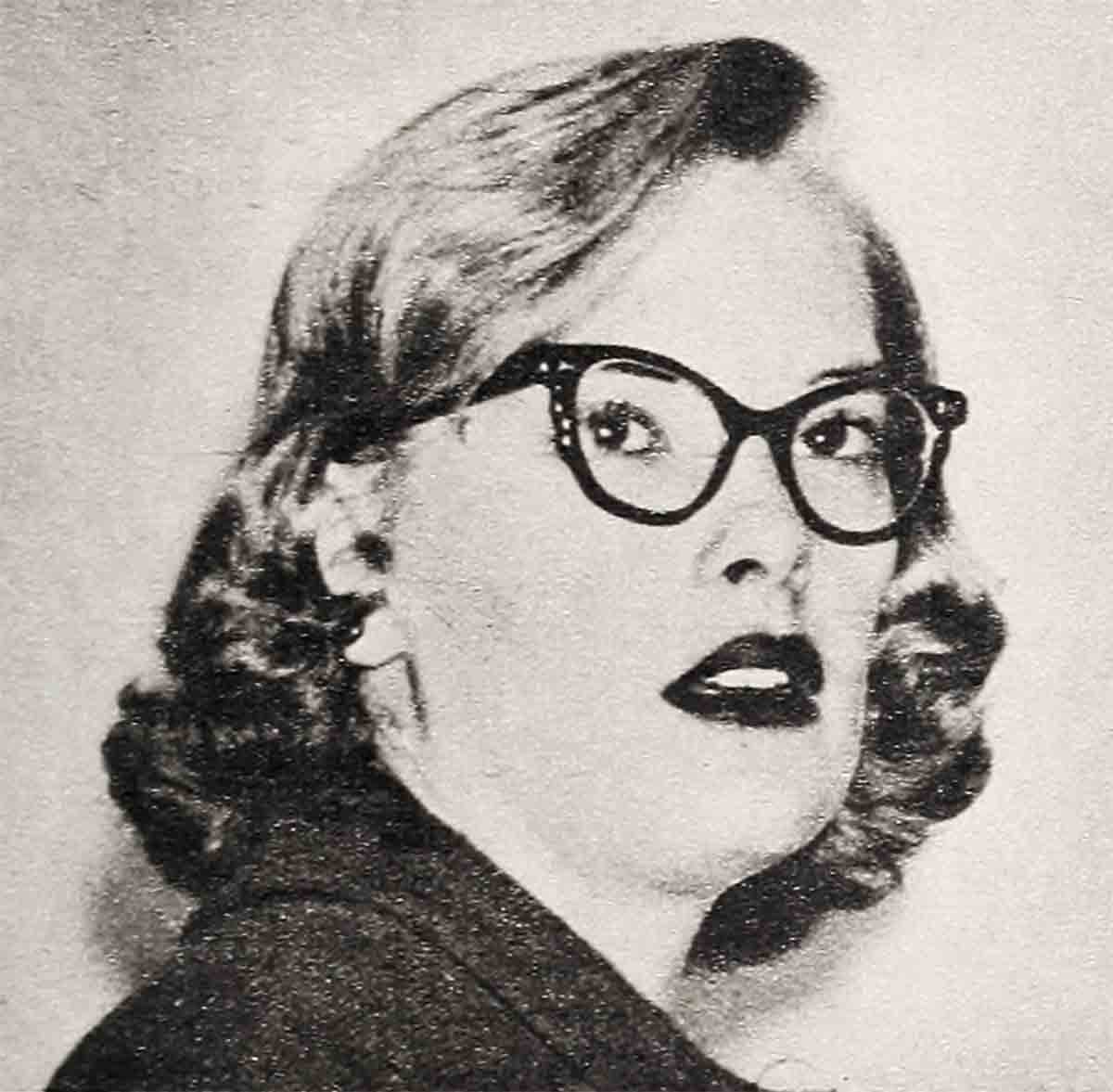
Why Paul Newman Left His Wife?
Last October the Paul Newmans announced they were separating.
Six years of marriage and three children had been pitted against one terrible truth, the truth that love had died. Jackie and Paul still shared a house, but their hearts had become strangers. So they quit.
They said good-by to each other and Jackie was left in the house on Long Island with Scott, Susan, Stephanie and the bitter knowledge that dreams are not forever. Paul fled to Hollywood to discuss The Jazz Age—the Helen Morgan story—and reporters thronged to both places, hoping for interviews which would clear up various whys and wherefores.
No soap. And no interviews. Neither Paul nor Jackie would talk, and their silence paved the way for endless speculation. People who are quick to leap at conclusions found ready answers. The Newmans were just another young couple thrown off balance by sudden fame, money, success in Hollywood.
It’s a good story. There’s only one thing wrong with it. It isn’t true. The Newmans’ problems began long before Paul ever set foot in Hollywood. The trouble began the day he first looked into the eyes of a girl named Joanne Woodward.
He met her on what must have been the most exciting day of his life. There he was, only five months out of YALE DRAMA SCHOOL, and he’d got himself a job in the Broadway play Picnic; and there she was, fresh from the NEIGHBORHOOD PLAYHOUSE and television, and she’d got herself a job in the same Broadway play. And from the grins on their two faces you’d have thought they were the stars, not a couple of understudies.
She was all big green eyes, a mop of blonde hair, a plain way of saying what she thought, and something about her killed him. Maybe, he thought later, it was the youngness you feel in young actresses when they’re so shiny and full of hope. His wife had been just such a young actress. They’d met in Woodstock, Illinois, in 1949; he’d been cast opposite her in John Loves Mary in a repertory company, and after a while they were calling the thing Paul loves Jackie, and marriage was the only possible answer.
In 1951, Scott was born. Jackie forgot any dreams of theatrical glory, and concentrated on making a home for her men. Sure, Paul probably thought, studying Joanne Woodward, she’s Jackie, four years ago. She’s cute.
Naturally, the two became buddies. Once rehearsals were under way, Paul got promoted from understudy to a real part, but he and Joanne were still the ‘kids’ in the cast; they still shared the wonderment of a first show.
Before its Broadway opening a play generally goes on the road for a few weeks, for an out-of-town tryout. And a funny thing happens to people in a show, on the road. They grow into a kind of family. They spend so many hours together every day, rehearsing, working, worrying. They eat their meals together. At night, in strange towns, in strange bars and coffee joints, they cling to each other.
When Picnic took to the road, its people became part of that magic, private world. How many nights Paul and Joanne must have sat up talking the problems of career versus marriage, the state of the nation, life, the theatre. How unimportant they must have thought those talks were, then. Paul’s wife was expecting her second child, and he and Joanne were honorable people, and love doesn’t sneak up and strike without any warning. Or does it?

No time to worry
In any case, there wasn’t time to worry. There was work, work, work, and, finally, opening night in New York. February 19th, and the chips were down. Throw away all the clippings that say how great you were in Salt Lake City; this is the big one, the one that counts.
It was fine. Picnic was a smash. Paul a smash. And in the middle of the crush, the congratulations, the telegrams, there was a quick kiss from the blonde understudy, a laugh, and an I-knew-you-could-do-it! And why did his heart skip a beat, when he knew she’d have said as much to anybody?
Forget it, you figure he told himself. You’re a man, not a boy. You’ve got a wife you love, and a life, and you don’t jeopardize those things.
He thought of the way Jackie’d been all for him, no matter what he’d wanted. Soon after they married, Paul’s father had died, and Paul had had to go home to Cleveland to take over the sporting goods store his family owned. A year of that, and he was frantic. “I want to act,” he’d said, and Jackie’d said okay. She didn’t remind him that security was sweet; she didn’t say actors cheat their families a hundred different ways. So on to the YALE DRAMA SCHOOL, and then to New York, and television jobs, and Picnic.
Jackie rooted from the sidelines, and had the hot meals ready whenever he happened to get home. If she wasn’t as much a part of his life as she’d once been, that’s the price you pay when your husband wears grease-paint.
In the summer of 1953, Susan was born. Paul spent long afternoons with Jackie and the babies. Then at night he’d go to the theatre, and in a hallway between dressing-rooms he’d bump into her unexpectedly . . . the one with the large green eyes.
It’s possible they were glad, Joanne and Paul, when Picnic was over. Fourteen months of friendship and closeness and bad jokes, and sudden, stricken looks. If they put a name to what was between them, if they called it love, that’s still their secret.
Paul went to Hollywood to make The Silver Chalice for WARNER BROTHERS. Jackie wavered between going with him and staying behind, finally chose staying. “The kids are too small to uproot.” Maybe she was wise, maybe she was foolish.
For Joanne Woodward turned up in Hollywood a few days after Paul arrived there. She was on a business-vacation.
They were two strangers in an often unfriendly town. What’s more natural than that they should see one another? First it was just on his days off, and then it was for dinners, soon it was every evening.
Say that they stole what didn’t belong to them, but don’t assume they were happy over it. Perhaps they promised themselves this little time together, and then an end. Jackie wouldn’t be hurt, because Jackie wouldn’t know. Nobody would know.

The anonymous two
Back then it was easy for them to wander, anonymous, across the town.
Strangely, a Hollywood columnist was the first person to get curious about Joanne. One night Sidney Skolsky spotted a friend of his sitting at a table with Paul and Joanne. Skolsky walked over, and was introduced. He didn’t know Joanne and Paul were together, and he found himself thinking Joanne was rather unusual. He made several conversational overtures; she let his words just lie there—which seldom happens when starlets meet reporters. Skolsky’s interest was piqued. As he was leaving, he turned back. “You know,” he said, “if you combed your hair and put on some make-up and decent clothes, you’d be a pretty girl—”
An alarming total of coincidences
Skolsky, unsuspicious of any relationship between Paul and Joanne, went serenely on his way.
But another reporter was beginning to put six and four together and come up with an alarming total: Coincidence piled on coincidence.
The reporter brooded a while, then took action. He phoned WARNER BROTHERS. Was Paul Newman divorced? No, Paul Newman was not divorced; he was still very very married; his wife had simply chosen to remain in New York while he made the movie.
The reporter felt like a louse. After all, the couple had been in Picnic together, they were pals, the whole business was coincidence.
Except that when Paul flew back to New York, Joanne flew back to New York. And when Paul reappeared on the Sunset Strip, there was Joanne, beside him.
Since you can’t do all that coast-to-coast traveling without a bit of cash in your pockets, Joanne was by now concentrating on her own career. She’d never been movie crazy, it’s true. She’d have taken a fat part in a picture, of course, but the thought of a stock contract appalled her. Who wanted to be tied down for a little money and a lot of years?
Still, her agent got her to test at Fox, and she finally signed a deal which pleased her. But it began to look as though her luck had hit just about the time Paul’s ran out. The rushes on The Silver Chalice were far from inspiring. You don’t have to knock the picture, or Paul either. They simply weren’t suited to each other. His sex appeal was buried under the robes of a mealy-mouthed nobleman. He couldn’t bear to watch himself on the screen; he wanted to run.
There’s misery and there’s misery. Paul needed to get away from Hollywood, back to the stage. He must also have needed to clear up his private life. Because you can’t work when you’re being torn apart inside, and he had a suspicion that his confused emotions were affecting his acting.

They meant good-by
Anyhow, he and Joanne said good-by, and this time they meant it. The one thing that now seems sure is the honesty of Paul’s intention. He meant to come home to Jackie, and make his marriage work. A lot of innocent people weren’t going to be punished because he, Paul, had been romantically mixed up.
Well, the Newmans did try, and they tried hard—Jackie as much as Paul. He got a job in a Broadway show called The Desperate Hours, and while he was in rehearsal Jackie told him they were going to have their third baby.
The Desperate Hours opened on February 10th, 1955, and ran for seven months. Paul played a villain, and got rave notices. His daughter Stephanie was born.
The Desperate Hours closed, and Paul went back to California to do a television version of Our Town. While he was out there, he snagged the lead in a movie called The Rack. It was summer by then. And Joanne was in Hollywood that summer. A brand-new Joanne, one that Sidney Skolsky would have beamed over, so dressy was she, so carefully made-up, so beautifully coiffed. She was in Hollywood doing a picture all the time Paul was in Hollywood making The Rack, but they didn’t see each other.
You don’t like to make a guy out a hero just because he’s faithful to his wife and family, but sometimes idealism is easier written about than practiced. Give Joanne and Paul some credit for that summer, when you’re toting up scores. It must have been awful for them to avoid one another, but they did it. Joanne was occasionally seen with a New York actor named Bob Quarry, but she was never seen with him more than just now and then . . .
“Where’s Jackie?” they asked
Paul worked days, studied evenings, looked a little strained, but tried to give straight answers when reporters asked straight questions. Somebody wanted to know why Jackie and the kids weren’t in California with him, and Paul said it was because kids needed roots. “You can’t keep shuffling them around all the time, much as you miss them when you’re away—”
Paul and Joanne returned to New York about the same time, but not together. Then Paul, borrowed from WARNERS by MGM, turned around and went straight back to Hollywood for Somebody Up There Likes Me.
The picture was great, but Paul’s peace of mind wasn’t. Right before its release, he disappeared. MGM, anxious to snag him tor some publicity, called his home. Jackie said she didn’t know where he was. A few weeks later, he showed up in New York. He did a few television shows, kept turning down scripts WARNERS’ submitted to him. The parts he was playing on television were indifferent ones, a couple were even bad, but he didn’t seem to notice. A psychiatrist might have called it self-destructive, and a psychiatrist might have been right. Because Newman didn’t appear to care much what happened to him.
The final proof of this came one night last July when he drove his brand-new very expensive sports car into a fire hydrant. Since the car could still run, he tore off again, leaving the hydrant overturned and pouring water. He was finally arrested for going through a red light, and taken to jail.
His conduct was anything but a shining example to the youth of the nation.
He screamed about reporters and photographers hanging around; the newspapermen were there covering a kidnapping, and hadn’t any idea Paul was Paul. He screamed about how he’d played Rocky Graziano, struck threatening poses—and insisted that his cell door mustn’t be locked because “I have claustrophobia”—which is a deadly fear of being in closed rooms or narrow spaces.
Somehow the picture didn’t shape up as that of a clean-limbed American boy having fun on a night out. The picture was of a deeply disturbed guy running away from himself, and yelling so he wouldn’t be able to hear himself think, so he wouldn’t have time to notice how dark it was getting.
In the Newman house, it had got very dark indeed. Jackie’s a proud girl. Offer her half a loaf, and she’s not so sure it’s better than none. She’s also a compassionate girl. Miserable for herself and her children, she must have been equally unhappy for Paul.
The price of happiness
At any rate, the Newmans separated quietly last October. As a last gift, Jackie Newman returned to her husband his peace of mind.
December found both Paul and Joanne Woodward in Hollywood. She was doing a Climax television show; he was deep in conferences over The Jazz Age.
In the middle of December, Paul gave his first Hollywood party. The guest list was carried in some of the columns—Tony Perkins, Rita Moreno, Virginia Leigh, Dennis Hopper . . . and Joanne.
There it was.
For the first time, there it was in the public prints. Their names linked.
Paul came back to New York to spend Christmas with his children, and Joanne came back to close up her New York apartment.
New Year’s Eve, Paul and Joanne were together. You wonder what went through their minds, as they toasted in 1957. For four years they must have looked forward to such a night, secretly, if not openly. Yet, having finally bought their happiness, they must have trembled at the price.
If Paul and Jackie divorce, if Paul and Joanne marry, what then? Can love erase guilt, and blot out pain? . Can you look so deep into wide green eyes that you’re able to forget three children, children who wonder why their daddy isn’t coming home?
THE END
Paul Newman can currently be seen in MGM’s The Rack. Watch for him Warner Bros.’ The Jazz Age.
Joanne Woodward will soon be seen the 20th Century-Fox film Three Faces Of Eve.
It is a quote. MODERN SCREEN MAGAZINE APRIL 1957




